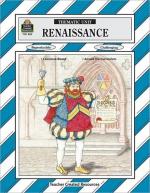|
This section contains 3,272 words (approx. 11 pages at 300 words per page) |

|
Origins.
Medieval scholastic philosophers had often revered Plato, even though very few of his works were directly known to them. Plato's dualism (the notion that the spiritual was inherently superior to the physical) and his realism (the notion that the realm of ideas shaped our sensory perception of the world or that the things that we see are only dim reflections of universal ideals or forms) seemed to fit with Christian ideas about the world. Very few of Plato's works, though, had survived in the Middle Ages. Some were available in Greek, but knowledge of Greek was almost non-existent in medieval Europe. Most scholastics knew of Plato's ideas only secondhand. They were known, in other words, from the writings of St. Augustine, the late antique Platonic philosopher Plotinus, and the early medieval scholar Boethius. Francesco Petrarch had collected some of Plato's works in their original Greek...
|
This section contains 3,272 words (approx. 11 pages at 300 words per page) |

|




